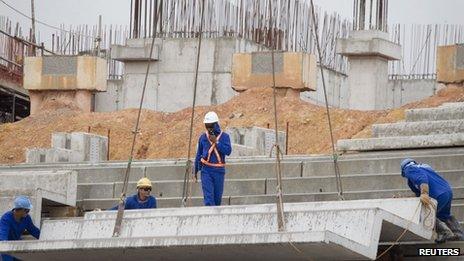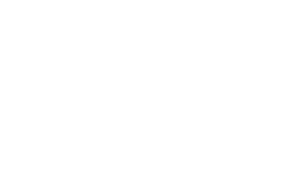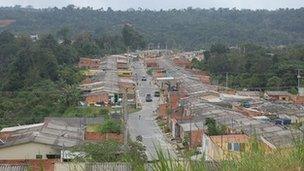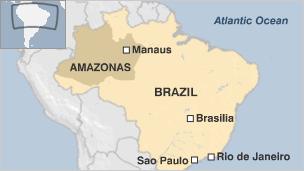Brazil's Amazon boom pits economic growth versus forest
- Published

Manaus is one of the host cities for the 2014 Fifa World Cup in Brazil
Marcelo Gordo is standing in the back garden of a small house in a suburb of Manaus, the capital of Brazil's Amazonas state, hoping to catch sight of a pied tamarin.
These small primates, with white upper bodies and brown bottoms, live only in rainforest surrounding the city and as Manaus grows and expands, they are becoming trapped in isolated patches of forest.
Mr Gordo, a researcher from the Federal University of Amazonas, has been studying these creatures for some 14 years.
He has pinpointed a group of about eight which live in a jungle-covered gully behind this row of houses.
"They have a very strict geographical distribution and in the last few years they've been losing this space," he says.
"If these animals had a very small geographic distribution in a different place, where they weren't competing with humans, there wouldn't be a problem, but they live right where Manaus is."

Pied tamarins are classified as endangered
Located deep in the Amazon rainforest, Manaus would seem an unlikely place for a city.
It flourished originally as the centre of the rubber boom in the late 1870s. Once rubber plantations were developed elsewhere, it lapsed into semi-obscurity once again.
But in the 1960s the military government, installed by a coup, was looking to consolidate its control over the country with economic development and galvanise its control over the Amazon region.
It encouraged businesses to expand into the area by offering generous tax breaks.
Tech companies
Manaus has grown in the ensuing decades. The population is now about 1.8 million, almost doubling in size since 1990.
With Brazil's healthy economy, the city is booming once again.
Many major multi-national technology manufacturers, like LG, Samsung and Philips, have a presence here and their business is swelling the population further.
"It's not easy to find employees with the background that we, the companies, are looking for," says Wilson Perico, director of the Technicolor factory which makes modems and satellite decoders.

Manaus districts are spreading further into the surrounding rainforest
"It's why some companies bring experts from other states or countries to help the new guys… to develop their activity here."
The increase in workers in the city led to the decision to build a bridge over the Amazon to open up the south bank of the river to development.
Inaugurated in late 2011, the Rio Negro bridge will give more commuters access to dormitory towns where developers are already building more housing.
Other changes are on the way. Manaus will be one of the host cities when the Fifa World Cup takes place in Brazil in 2014.
Construction is already under way on a 40,000-seater stadium and several new hotels are planned for the thousands of visitors who are expected to descend on the city.
The tournament organisers have vowed the stadium will be environmentally friendly, using energy efficient lighting and harvesting rainwater.
Road building
But even with such "green" credentials, Manaus' expansion is still a threat to the environment that surrounds it.
There are few roads connecting the city with the outside world and most visitors arrive by air or by boat, along the immense Amazon river.

As the city grows, there are concerns that more overland routes will become necessary. Ecologists say where roads are built, destruction of the rainforest is sure to follow.
"A lot of the land that's in the public domain will wind up passing to become private land by people just moving in illegally and just starting to clear," says Philip Fearnside, an American academic who has lived and worked in Manaus for more than 30 years.
"You have this tremendous pressure on land that will move out from any road that is built," he says.
Manaus encapsulates the conundrum facing developing countries whose leaders will be gathering in Brazil in June for the United Nations Conference on Sustainable Development, also known as Rio+20.
They will be pondering the question - how do you provide jobs and growth to eradicate poverty, without destroying the environment?
- Published2 January 2012
- Published2 December 2011
- Published5 July 2011